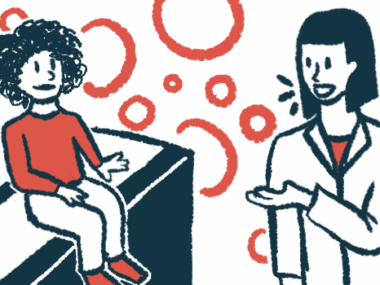Sickle cell children connect at NC summer camp
Campers 'build lifelong relationships' with friends who have similar challenges
Written by |

A camp in North Carolina offers children living with sickle cell disease the chance to build confidence, independence, and emotional strength while connecting with others who also live with a chronic blood disease.
Each summer, Camp Hope provides kids with sickle cell to learn about themselves while participating in activities like swimming, canoeing, archery, and crafts. Another camp, Camp Rainbow, provides similar opportunities for children with cancer or hemophilia and those who have lost a sibling to one of these diseases.
Both camps, organized by the staff at ECU Health and the Brody School of Medicine at East Carolina University in Greenville under the direction of child life specialist Tamika Mackey, are held at The Refuge in Ayden.
“This is a week for them to come to camp and just be a kid and have fun and meet other kids that may have the same type of condition that they have,” Mackey said in a university press release. “My favorite part is seeing smiles on their faces, getting hugs from the kids and seeing them meet new people.”
Staying in touch
Sickle cell is a genetic disease that causes red blood cells to become stiff and abnormally shaped. These abnormal red blood cells can get stuck in small blood vessels and compromise proper deliver of oxygen to tissues, leading to a wide range of sickle cell symptoms.
Children diagnosed with sickle cell disease become tired easily and can experience frequent episodes of severe pain, which can make it difficult for them to join in regular school and fun activities. They also need ongoing medical monitoring to prevent complications.
While at Camp Hope or Camp Rainbow, children receive around-the-clock medical care and close monitoring from the ECU Health team, which includes doctors, nurses, child life specialists, and social workers. Camp activities include sailing, canoeing, swimming (with adapted lessons for children with disabilities), music, arts and crafts, support sessions, campfires, and nature walks.
“The goal is for kids to meet other children that may share the same medical condition that they have and to build lifelong relationships,” Mackey said. “They don’t all live in the same area, but they stay in touch with group chats and even checking on each other during hospital stay.”
Children attending the camps say the experience is a reminder that they are seen, supported, and loved every step of the journey through their diagnosis, no matter the challenges they face.
“Whenever I was growing up, we had mentors and volunteers that were coming to camp and taking time out of their week to make sure that we had a very great time,” said Heaven Glaspie, who began attending the camps at age 8 after being diagnosed with sickle cell disease. Now 23, he is a camp counselor.
“For me to be able to do that whenever I aged out of camp and come back and be able to help other people have a good time, that’s one of the best feelings in the world to me,” Glaspie said. “The smile on their face that they give you whenever they’re having the best time of their life at camp, it’s very heartwarming.”
Mackey said seeing volunteers who are former campers shows kids with these conditions that they too can give back one day.
“It’s powerful for them to see someone living with sickle cell disease or a similar condition to them who’s thriving,” she said.






